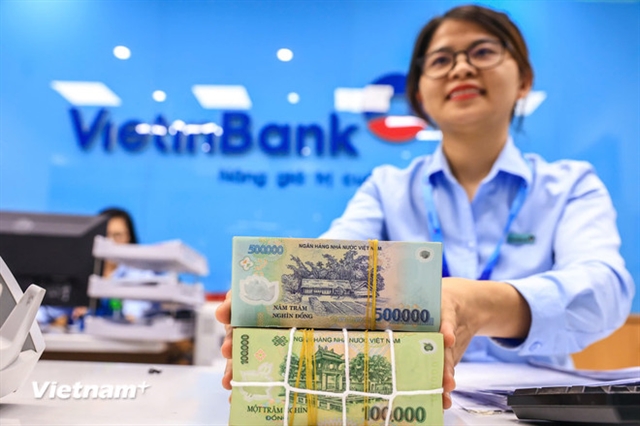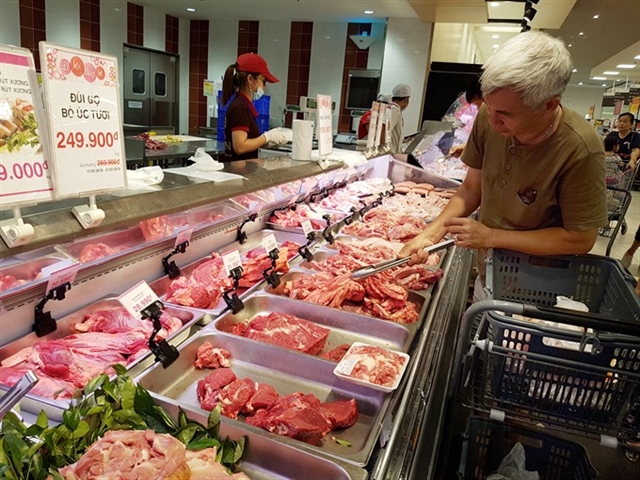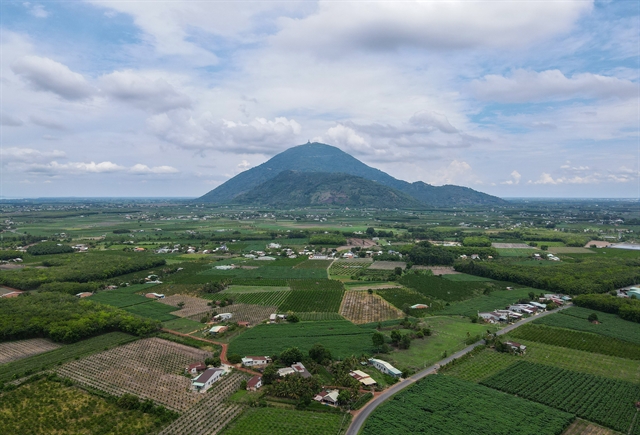 Economy
Economy


|
| Customers shop at the Aeon Mall Long Biên Trading Centre in Hà Nội. The average consumer price index (CPI) this year expanded by 2.79 per cent over 2018, the lowest pace over the past three years, GSO announced. — VNS Photo Thái Hà |
HÀ NỘI — Việt Nam’s gross domestic product (GDP) expanded 7.02 per cent this year, fueled by a robust expansion of the processing and manufacturing sector and service sector, according to the General Statistics Office (GSO).
“This is the second consecutive year that Việt Nam's economic growth has reached over 7 per cent since 2011, except for the year 2018, where the country’s growth rate was recorded at 7.08 per cent,” said GSO General Director Nguyễn Bích Lâm at a press conference in Hà Nội on Friday.
“This year’s GDP growth has seen impressive result as it exceeded the National Assembly's target of 6.6-6.8 per cent,” Lâm said.
Processing and manufacturing was the pillar of growth, rising 11.29 per cent, the highest level in the last seven years.
Expanding 8.9 per cent and 7.3 per cent, the industrial and construction sector and the service industry contributed 50.4 per cent and 45 per cent, respectively, of GDP growth.
The service industry saw the contributions of wholesale and retail sales, financial activities, banking and insurance, accommodation and restaurants, transportation and warehouse and property.
“These macro-economic indices proved the promptness and efficiency in the steering work of the Government and the Prime Minister along with efforts of ministries, sectors and localities since the onset of the year,” Lâm said.
The mining industry increased slightly by 1.29 per cent after three consecutive years of decline thanks to a rise in coal mining, offsetting the drop in crude oil exploitation.
The agro-forestry-fishery sector picked up 2.01 per cent, contributing 4.6 per cent of GDP growth.
It also saw a low growth rate due to drought and climate change which affected crop output. The industry picked up 2.01 per cent, contributing 4.6 per cent of GDP growth. Livestock industry was severely damaged by African swine fever, Lâm said.
CPI lowest rise in three years
The average consumer price index (CPI) this year expanded by 2.79 per cent over 2018, the lowest pace over the past three years, GSO announced.
The target of curbing inflation and keeping the CPI in 2019 below 4 per cent was achievable, said head of the GSO’s Price Statistics Department Đỗ Thị Ngọc.
In December alone, CPI rose by 1.4 per cent from the previous month, the highest level for December’s CPI growth rate in the last nine years.
December’s CPI is also reported an increase of 5.23 per cent compared to the same period last year.
The General Statistics Office (GSO) attributed CPI hike in December to the rising price of pork and pork products after the declining supply caused by the African swine fever crisis.
In December, nine of 11 groups of consumer goods and services have seen prices rise.
These include food and catering services; beverages and tobacco; housing and construction materials; clothing, hats and footwear; household appliances; medicines and healthcare services; education; and culture, entertainment and tourism.
The only group of goods witnessing declines was post and telecommunications.
Regarding the whole year, Ngọc said this year’s CPI hike was driven by higher prices of medical services, which climbed up 4.56 per cent in line with the Health Ministry’s Circular 13/2019/TT-BYT dated July, 5 2019.
She also attributed CPI’s growth to the rise of electricity prices which were adjusted up from March 20, 2019 under the Ministry of Industry and Trade’s Decision No 648/QD-BCT. Higher demand for electricity during the Lunar New Year 2018 and hot weather in the second quarter and third quarter this year have made the prices of electricity jump by 8.38 per cent in 2019 compared to 2018.
Higher tuition fees, an increase in the regional minimum wage, plus higher prices of food, public transport services, and oil and gas products also contributed to the CPI rise.
According to the GSO, this year’s basic inflation (CPI exclusive of foodstuff, fresh food, energy, healthcare and education services) rose 2.01 per cent over the previous year.
Ngọc said ministries and agencies had actively implemented the tasks and solutions to realise the socio-economic development plan and state budget estimate in 2019, aiming to keep CPI growth in 2019 below 4 per cent.
The Finance Ministry has also stepped up market inspections. Meanwhile, the State Bank of Việt Nam has managed the monetary policy, consistently pursuing the goal of maintaining macro-economic stability. — VNS




